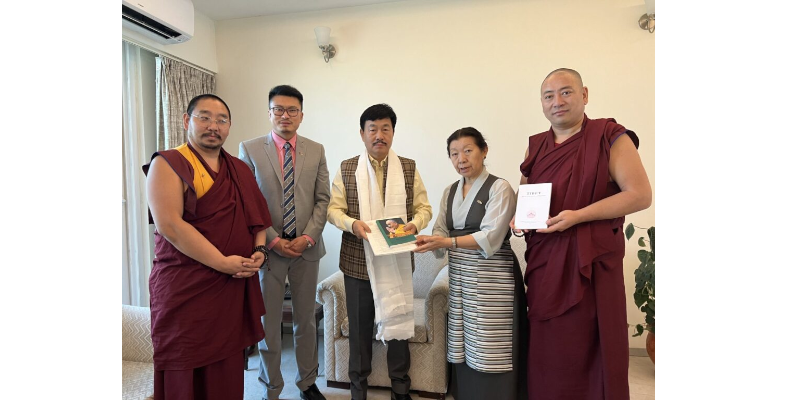Dharamshala, 9th April: This week, the Tibetan parliamentary delegation led by Dolma Tsering has been meeting Indian MPs and political leaders, with a focus on interactions with lawmakers from the north-eastern states to discuss China’s “hydro-hegemony” by controlling the waters of cross-border rivers like the Brahmaputra. Since Monday, the delegation led by legislators Tenpa Yarphel, Khenpo Kada Ngedup Sonam, and Phurpa Dorjee Gyaldhong has met with 38 MPs from various parties as well as Union law minister Kiren Rijiju.
The delegation’s journey to New Delhi to campaign for Tibet comes just over a week after Chinese Foreign Minister Wang Yi’s visit to India. Tibetan representatives’ relations with Indian officials are closely coordinated. Following a similar incident in December, a Chinese embassy official wrote directly to Indian MPs to express his opposition to their meeting with members of the Tibetan parliament-in-exile.
The goal of the current round of meetings, according to deputy speaker Teykhang, is to enlighten Indian legislators and political figures about human rights issues and Chinese authorities’ targeting of Tibetan culture and religion.
Dolma Tsering la said that it is their duty to inform Indian MP about the dire situation of human rights violations in Tibet, as well as how culture and religion are being targeted in Tibet. She continued that if India wants to ensure border peace in Arunachal Pradesh, the Galwaan Valley, or elsewhere, it must encourage China to sit down for talks with representatives of His Holiness the Dalai Lama.
She explained that the focus on the northeast is due to the fact that the rivers that originate in Tibet are now under China’s control, and China is known for damming all rivers and exerting hydro-hegemony overall downstream countries. She claimed that the “tap is in China’s hand.”
The team also met with Taiwan’s representative in India, Baushuan Ger, to explore ways to promote the Taiwanese-Tibetan friendship.

